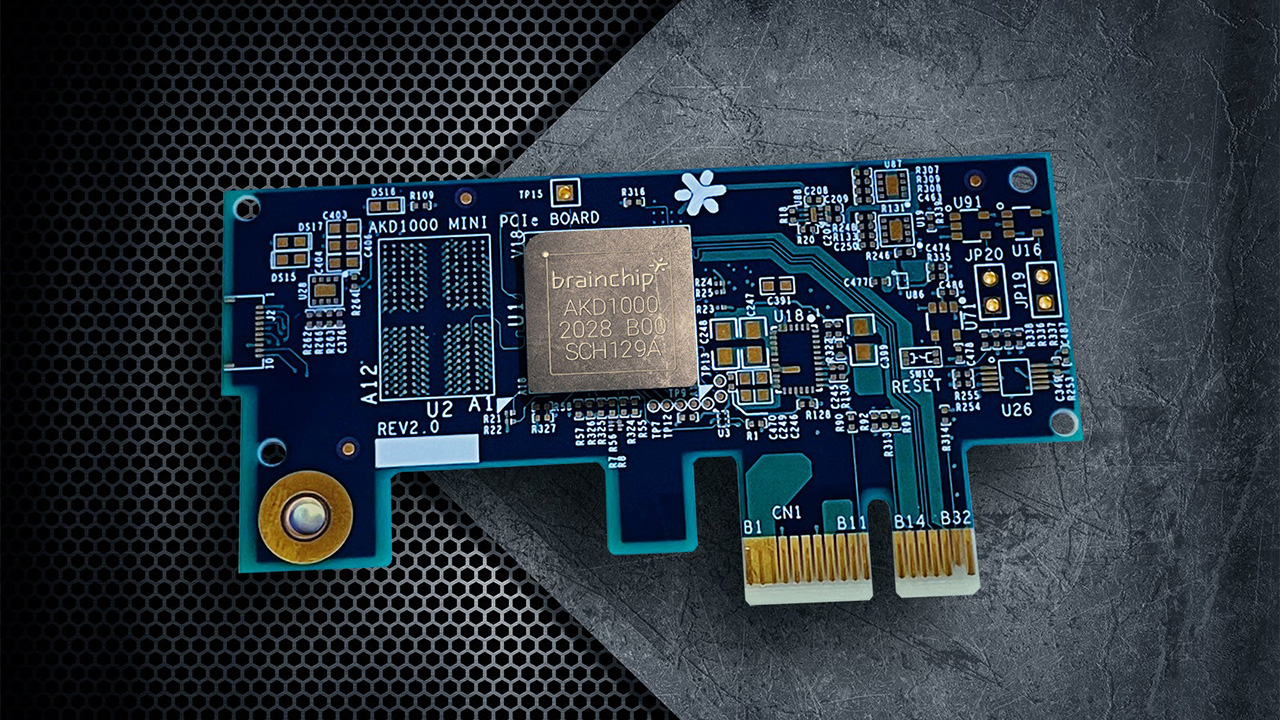BrainChip's $499 Akida AI Board Goes Solo
The AKD1000 neuromorphic processor from BrainChip can now be bought as a Mini PCIe card instead of a bundle.
The Akida Mini PCIe board from BrainChip, which allows the creation and control of a spiking neural network, is now available as a standalone product. Previously the board was only available via development kit bundles including a Raspberry Pi 4 kit.

The boards, which feature the company's Akida AI accelerator chip the AKD1000 alongside an Arm Cortex M4 core and both RAM and flash memory, have previously been available in two forms: a Shuttle PC compatible with Intel 10th-Gen processors (which you supply yourself) or a smaller, cheaper kit powered by a Raspberry Pi 4.
The ADK1000 can emulate 1.2 million neurons and 10 billion synapses in a spiking neural network. If that’s not enough for you, up to 64 of the devices can be daisy-chained together over PCIe. It’s designed for use as a stand-alone embedded accelerator or as a co-processor.
| CPU | ARM Cortex-M4 32-bit @ 300MHz (Subblock of Akida) |
| RAM | RAM: 256M x 16 bytes LPDDR4 SDRAM @ 2400MT/s |
| Flash | FLASH: Quad SPI 128Mb NOR @ 12.5MHz |
| GPIO | 2 LED’s |
| Interfaces | 5GT/s PCI Express 2.0 x1-lane |
| Dimensions | 40mm x 76mm x 5.3mm (exc. PCIe rear panel bracket) |
The neuromorphic processor allows users to create, train and test neural networks through the MetaTF development environment. The PCIe layout files and a bill of materials are also being made available to system integrators so that they can create their own custom designs based on the AI accelerator.
The card can now be purchased singly, for $499, or in larger orders of up to ten. BrainChip's recent announcement of 'high volume' production means that this limit should be removed once stock levels begin to rise.
Get Tom's Hardware's best news and in-depth reviews, straight to your inbox.

Ian Evenden is a UK-based news writer for Tom’s Hardware US. He’ll write about anything, but stories about Raspberry Pi and DIY robots seem to find their way to him.